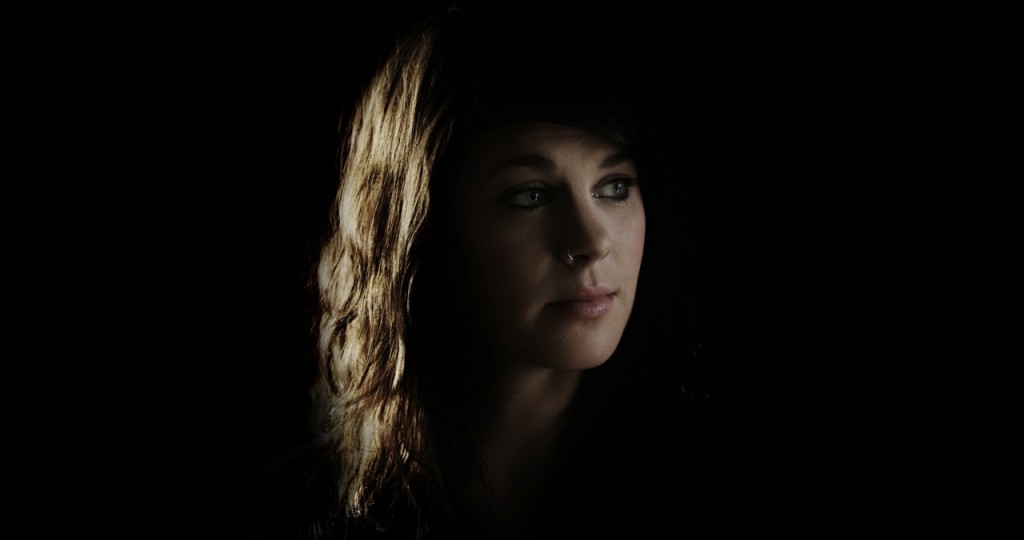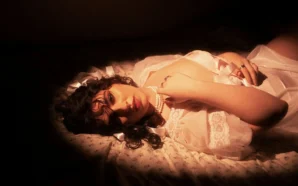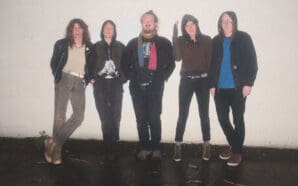San Francisco-based Debbie Neigher’s musical career is still fairly fresh, although she already has quite an impressive list of credentials. Last week she released her sophomore LP, Unravel, her second to be produced by John Vanderslice, most famous for his work with the likes of Spoon, Death Cab for Cutie, and St. Vincent. The album represents Neigher’s first time fully embracing life as a musician. The album has Neigher confidently and competently exploring a far more diverse and more varied scope of sounds than the piano-based singer/songwriter aesthetic of her debut. She’s currently touring behind the release and has two east coast shows later this week, with a November 22nd stop at B. Good Lounge in Boston and a November 23rd date at Rockwood Music Hall in New York. Neigher recently took some time to chat with me about her recent evolution, both in her sound and her lifestyle, and what the future might hold for a still-young, but quite promising musician.
Izzy Cihak: You’re based out of San Francisco. How do you feel about the city’s music and arts scene? I’ve interviewed a lot of really cool acts out of the area in recent years.
Debbie Neigher: I really love the San Francisco music and arts scene. I particularly love the rich history of muralists and street art in the city. I also feel deeply connected with the music community – I was so lucky to stumble upon the extended family of Tiny Telephone (recording studio owned by John Vanderslice) – there is so much groundbreaking talent, coupled with the kindest and most humble people I’ve met. There’s also a lot of collaboration and sharing of band members in SF – I think I’ve been in four different bands with my bass player!
IC: You recently released your sophomore LP, Unravel. How do you feel like it compares to your debut?
DN: I feel much different about this record than my first – I had songs on my debut I wrote when I was 17! This time around, we left a lot to spontaneity; instead of the piano being the main narrator with drums and bass and orchestra filling out the songs, we tracked drums, bass, and electric keyboard so we could gut out the piano sounds and replace them one by one with the plethora of keyboards, synths, and organs laying around the studio. John Vanderslice got his hands a little dirtier as producer this time, too – he would make lightning decisions about throwing in or removing instruments, have me write new harmonies on the spot, and did live dubbing on synths while I was playing and recording. Recording once again on tape contributed to spirit of spontaneity and commitment to a take and a moment; everyone feels way more present without the surgery that can happen in digital editing.
IC: Have you had any favorite responses to the album, whether from critics or friends or family? Is there anyone who you think best “gets” the album?
DN: I was blown away by a very kind review from Paste Magazine – I was so shocked to be on there, let alone such a lovely review! I was so nervous I think I refreshed the page about 100 times waiting for it to come up. My friends have also been incredibly supportive – “Your new album is cray,” would definitely have to be a personal favorite.
[youtube http://youtu.be/fN_W8n7L_Pk]
IC: What were the album’s most significant influences?
DN: I was listening to a lot of St. Vincent and Bon Iver in the time between my debut record and recording Unravel. I also ended up playing with a bunch of different Bay Area bands over the past few years, including everything from bluegrass to psychedelic rock to electro-indie, so I’ve been very fortunate to have been learning and performing a lot of different styles of music all at the same time. I was also inundated by my work with homeless youth in San Francisco, and some of those experiences made their way into the record. Trying to incorporate social issues into songwriting has always been tricky for me; the outcome dangles on the edge of being preachy/trite and being compelling.
IC: What have been your highlights of 2013?
DN: 2013 has been both amazing and challenging. I quit my full time job of three years, co-managing an arts program for homeless youth in San Francisco, right at the end of 2012, to record this record and to fully pursue music. It was liberating, terrifying, and emotionally turbulent – finally plunging all the way into my dream continues to come with moments of bliss, fear, and self-doubt, depending on the minute. I released a record, fell in love, moved, toured, and performed with six different bands in 2013 – I feel insanely grateful for these experiences and feel very different than I did in 2012.
IC: You’re going to be playing a couple of east coast shows in the near future. What can be expected of the live experience?
DN: I’m so excited to finally be playing the east coast again, especially in cities where I used to live! We have a lot of energy at our live shows and I’ve tried to recreate a lot of the sounds from the record with multiple keyboards on stage. I’m barely tall enough to see over my tower o’ keyboards – it’s very 80’s!
IC: What are you hoping and planning for in 2014? Any chance of a larger tour?
DN: My goal is to keep touring and promoting the record, hopefully coming out with some new music videos, as well! I’d love to start refining some new material too!








